Have you ever wondered how life might have turned out if you hadn’t studied that thing… taken that job… married that person… made that decision?
I engage in these existential exercises all the time. Not because I’m unhappy with my life. No, it’s not that. But the thought that if I’d done just one small thing differently, my life might have gone in a completely different direction. The notion is fascinating. Staggering. Mind-boggling.
It’s why I enjoy time travel stories and Sliding Doors-like narratives. I love imagining the endless possibilities that exist, the ways in which life might have spun out. The ways that paths might still be altered.
Multiverse stories — alternate timelines — are similarly satisfying. Because all those possible paths? They exist simultaneously. And if you had the ability to step from one stream to another? Well, what would you do with that power? Would you come to the conclusion that no version of life beats the one you’re already living? Or would you try to step into the life of another you?
There may come a time when you find yourself at just such a crossroads. (Come on. Let me dream.) The books below will prepare you for just such an eventuality.
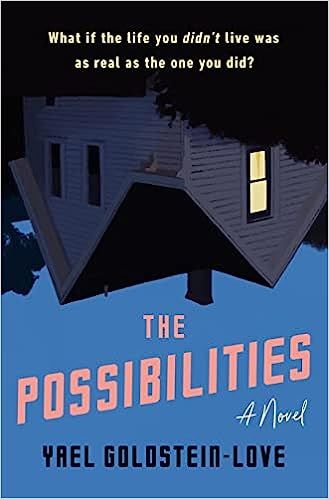
The Possibilities by Yael Goldstein-Love
A lot of the multiverse stories I’ve read in the past have been full-on action tales or sci-fi adventures that grapple with advances in technology. But Goldstein-Love’s book is placed firmly in the ordinary present and digs into issues of postpartum depression. In this novel, the protagonist — a new mom — is haunted by horrible visions of something everyone in her life insists never happened: her child stillborn. The persistent vision leads to postpartum anxiety, which in turn leads to cracks in her marriage. But when her child actually disappears, she discovers she has the power to travel through the multiverse. If she can only harness this power, she may be able to find and save her baby.
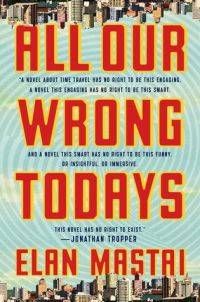
All Our Wrong Todays by Elan Mastai
(Trigger Warning: Sexual Assault)
Remember that ethical quandary I mentioned above? The one where you must choose between the life that’s yours and an alternate life that, in the moment, seems more attractive? This story pivots around that particular dilemma. In Mastai’s sci-fi thriller, his protagonist lives in a perfect world but is reeling from heartbreak. He sets out to fix everything with the help of a time machine but ends up in an alternate reality he wishes was his own. But what would it mean to take the place of the person who already exists in that reality? Morally dubious narrator aside, I found this to be a fun read.
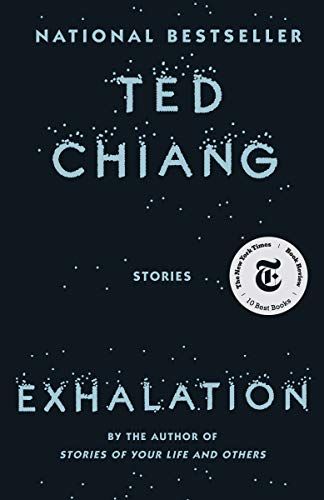
Exhalation by Ted Chiang
This book is a collection of sci-fi stories and novellas, two of which tackle the multiverse head-on. In “Anxiety Is the Dizziness of Freedom,” there are devices that allow for communication between two parallel timelines, something that ends up being more problematic than expected when it causes an abundance of existential crises. And in “The Truth of Fact, the Truth of Freedom,” folks are able to share memories across parallel narrative strands, which leads to its own complications. Multiverse or no multiverse, all the stories in the collection were incredibly thought-provoking.
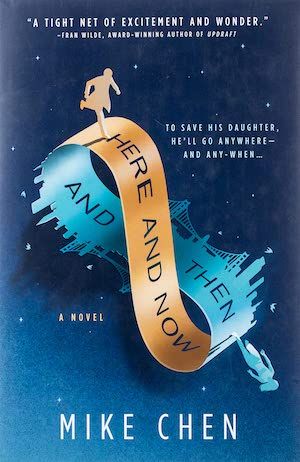
Here and Now and Then by Mike Chen
This sci-fi adventure is more of a time travel story than a multiverse novel, but its main protagonist is forced to choose between two separate lives, which makes me want to include it here. Once upon a time, Kin was a time-traveling secret agent who ended up stranded in ’90s-era San Francisco. As the years pass and he remains stuck in the past, he builds a new life for himself, one with a family he loves. When his rescue team finally arrives from a future in which only two weeks have passed — a future where there’s another family waiting for him — he’s not sure what to do.
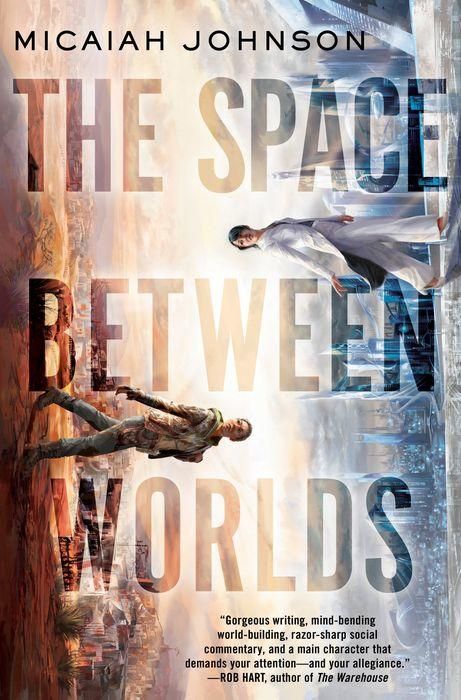
The Space Between Worlds by Micaiah Johnson
In this dystopian thriller, multiverse travel is possible…but only into worlds where your other self has already passed away. Our protagonist is used to the fact that most of her other selves are dead. She’s from a marginalized community, one that makes it tough to survive for very long. But when one of her last remaining doppelgangers kicks the bucket, she discovers that something fishy is going on.
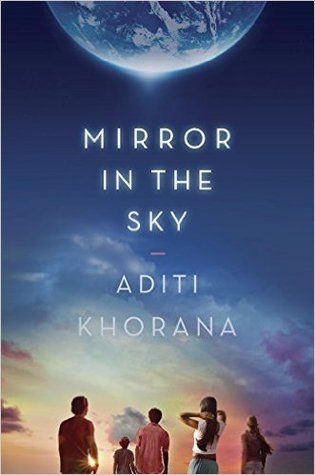
Mirror in the Sky by Aditi Khorana
The only YA on this list, Mirror in the Sky, is about a prep school girl who finds her world turned upside down when NASA intercepts a message from an alternate Earth. The prospect of the kind of life her doppelganger might be living on this other Earth has profound effects on the life she’s already living…and on the lives of everyone around her. It makes one wonder: how would you change the way you lived if the prospect of another you — leading an even better life — became verifiably real?
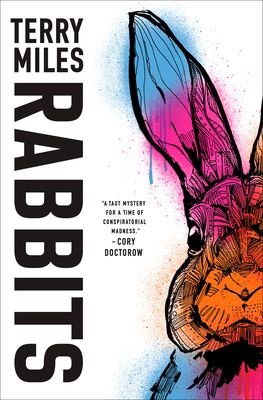
Rabbits by Terry Miles
I’ve already written about Rabbits in the context of books that make you question reality. I’m placing it on this list because, in this technothriller, the author explains the Mandela effect phenomena as being the direct result of timeline-hopping. Insert exploding-head emoji. Anyway. The characters in this book are playing an alternate reality game that has them seeking out déjà vu-like connections and odd anomalies. But they soon learn that it’s more than just a game…and suddenly, the stakes feel infinitely higher.
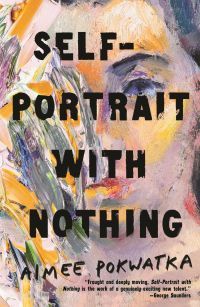
Self-Portrait with Nothing by Aimee Pokwatka
I promised you quirky, and I feel that by dint of being about the multiverse, all of the titles on this list deliver. But this tough-to-categorize novel by Pokwatka was something else entirely. In this dark sci-fi/fantasy, our protagonist learns that her biological mother — a reclusive artist who abandoned her when she was just an infant — has died. But Ula Frost wasn’t a typical artist, and it’s been said that her portraits summon the subjects’ doppelgängers from parallel universes. Could it be true? Could the real Ula still be out there? This story is a wild ride that gets progressively more and more bonkers.
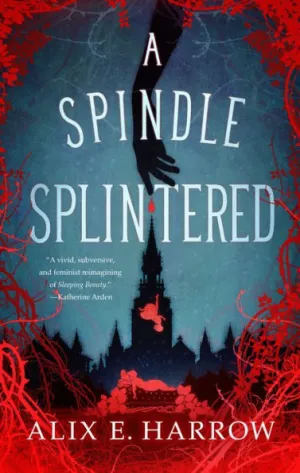
A Spindle Splintered by Alix E. Harrow
Part of the Fractured Fables series, the first book is about a young woman with a rare degenerative illness who finds herself sucked into an alternate reality…one that’s literally the stuff of fairy tales. In saving the Sleeping Beauty in this alternate dimension, can she change her own fate? Throughout this series, we learn that the fairy tales we grew up reading are playing out — in a variety of ways — across multiple universes. Harrow’s approach to the multiverse is interesting in that it pushes back against questions of fate and gender roles and fairy tales themselves. I really enjoyed the first two books in this series, and I can’t wait to read the next one, out in early 2024.
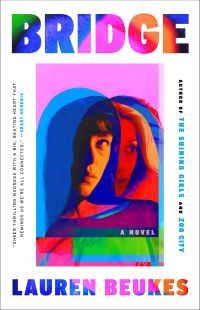
Bridge by Lauren Beukes
Just released; I think it might be my favorite Beukes book yet. For me, this book has echoes of the above-mentioned Pokwatka title in that it features a multiverse-traversing mother with shady motives who is presumed dead. In Bridge, our protagonist’s neuroscientist mom was convinced she could travel between worlds and, in fact, used to bring her young daughter along with her. All grown up now, Bridge has since been convinced that her childhood dimension-hopping is just a result of false memories. But when her mom passes away, Bridge comes to believe that it may not have been her mom at all…and that perhaps her mom is still out there, just another dimension away. (It’s so interesting to me that so many of the multiverse books I’ve been reading lately have such strong motherhood themes!)
Do you love these sorts of stories, too? Once you work your way through these, you can go back to my previous post on time travel reads. If you’re into head scratchers in general, my list of books that will make you question reality feels like a close cousin to these other reads.
